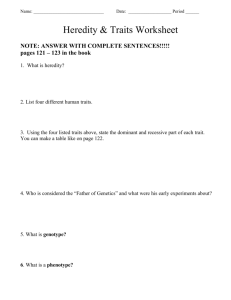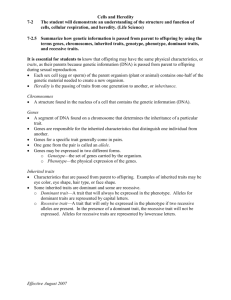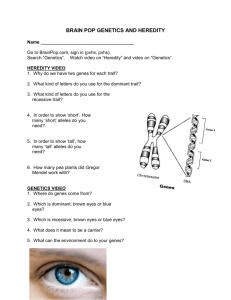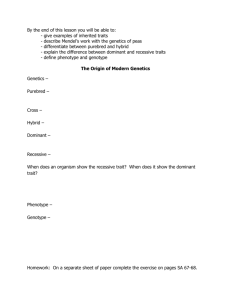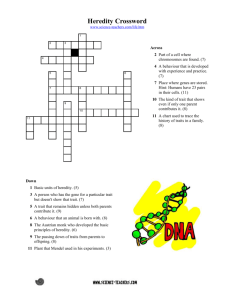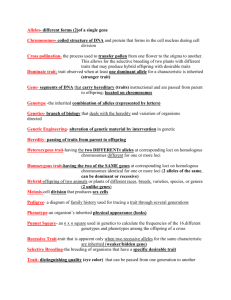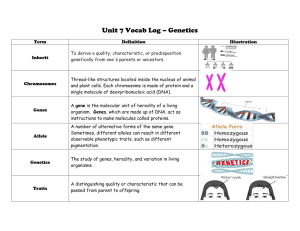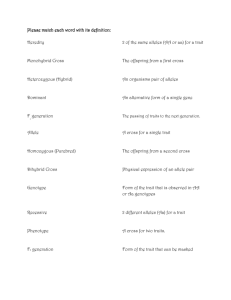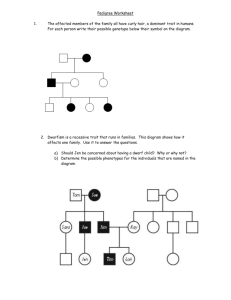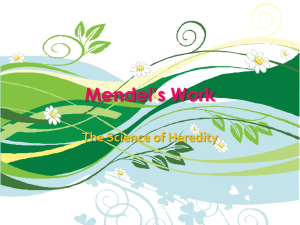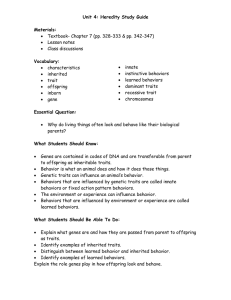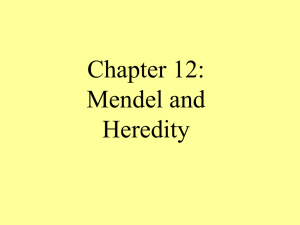Heredity - Science with Ms. C
advertisement
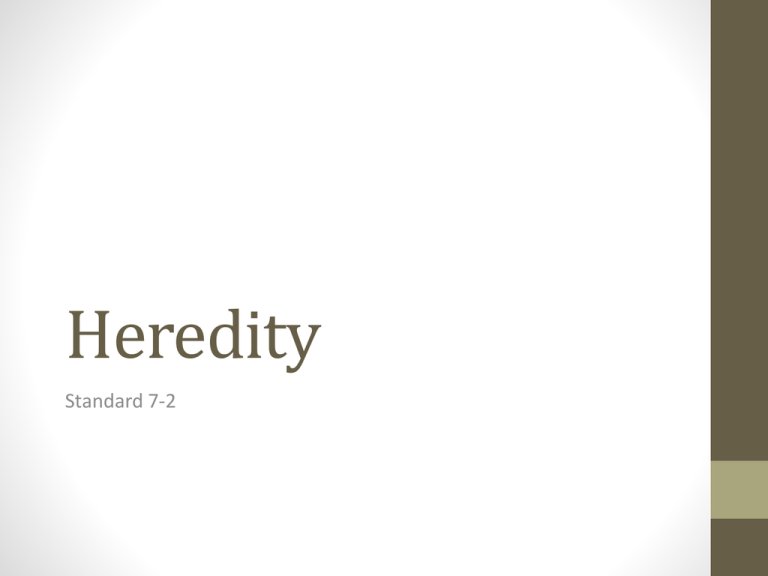
Heredity Standard 7-2 Heredity • Offspring may have the same physical characteristics, or traits, as their parents because genetic information (DNA) is passed from parent to offspring • Each sex cell (egg or sperm) of the parent organism (plant or animal) contains one-half of the genetic material needed to create a new organism. • Heredity is the passing of traits from one generation to another, or inheritance. Chromosomes • A structure found in the nucleus of a cell that contains the genetic information (DNA). Genes • Gene: A segment of DNA found on a chromosome that determines the inheritance of a particular trait. • Genes are responsible for the inherited characteristics that distinguish one individual from another. • Genes for a specific trait generally come in pairs. • One gene from the pair is called an allele. • Genes may be expressed in two different forms. • Genotype—the set of genes carried by the organism. • Phenotype—the physical expression of the genes. Inherited Traits • Characteristics that are passed from parent to offspring. Examples of inherited traits may be eye color, eye shape, hair type, or face shape. • Some inherited traits are dominant and some are recessive. • Dominant trait: A trait that will always be expressed in the phenotype. • Alleles for dominant traits are represented by capital letters. • Recessive trait: A trait that will only be expressed in the phenotype if two recessive alleles are present. In the presence of a dominant trait, the recessive trait will not be expressed. • Alleles for recessive traits are represented by lowercase letters.
